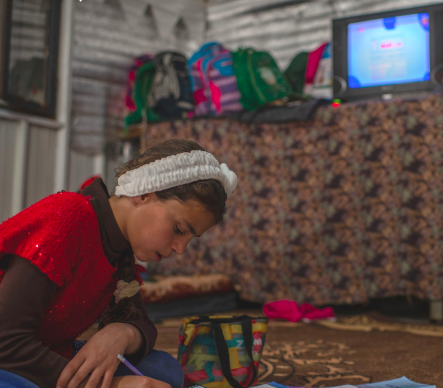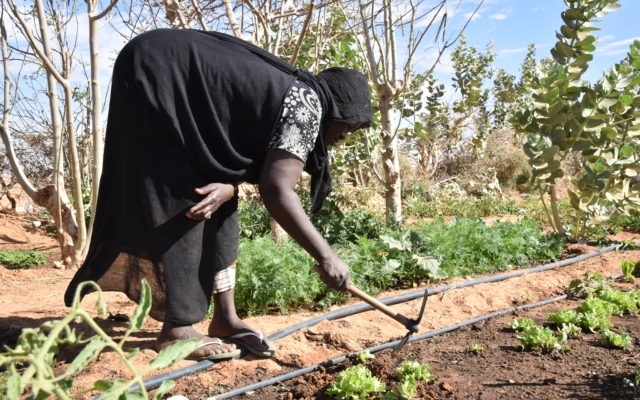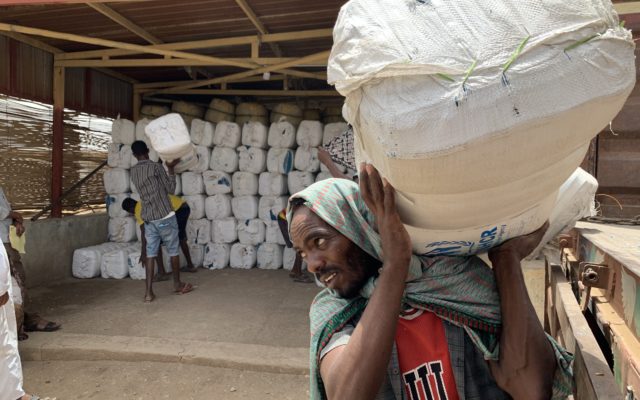Clean power throughout the pandemic
The camps of Azraq and Zaatari in northern Jordan are home to 118,000 Syrian refugees – and two pioneering solar power plants.
Jordan has suffered the effects of climate change in recent years, with less rainfall, harsher winters and extremely high temperatures in summer. So UNHCR is working with local partners to minimise the environmental impact of the refugee camps and provide renewable solar energy to families.
Azraq camp was the first refugee camp in the world to be powered by clean energy and Zaatari is now the largest of such solar power projects. Both were funded by the IKEA Foundation and provide renewable energy free of charge to residents – giving families many more hours of power than they had previously and allowing them to chill their food, charge their phones and light their homes for longer.
This proved particularly vital when the pandemic hit and schools across the camps closed. Suddenly, thousands of pupils were forced to shift to e-learning programmes and the demand for electricity soared. If it hadn’t been for the solar energy systems, there would have been widespread power outages – and families would have struggled to go about their essential daily routines.

“Without electricity, I wouldn’t be able to do my homework,” says 12-year-old Zeinab, who lives in Azraq camp. She’s been studying remotely for many months, following an e-learning programme by means of her solar-powered TV.
52-year-old Fatima is equally grateful for the benefits that solar power brings to herself and the rest of her family.
“Before, when we cooked a meal we had to throw the leftovers away, because there was no safe way to store food,” she explains. “When we got too hot, we had to pour water on our clothes to keep cool. Now we can listen to music or have a cold glass of water and daily life no longer ends when the sun sets.”
In the months ahead, UNHCR will be helping to build on the success of these life-changing solar power plants and potentially expand them further.
It will support a steady monitoring approach to improve energy efficiency, as well as other measures to reduce the camps’ carbon footprints. And it will continue to tackle the challenges posed by the pandemic and the climate emergency so that refugee families can live with the power – and dignity – they deserve.




